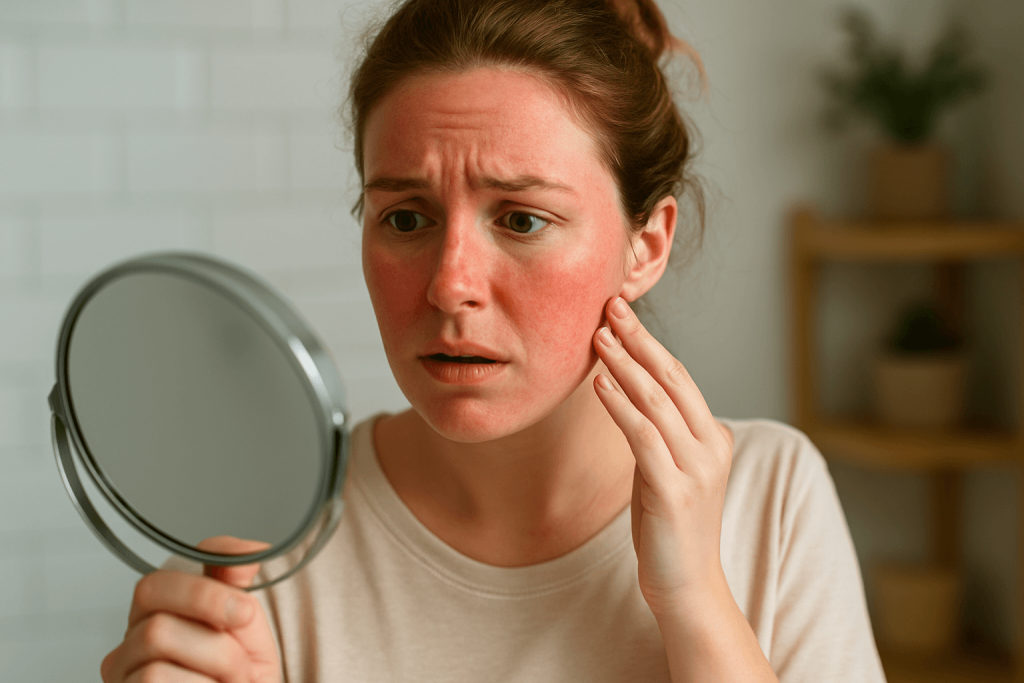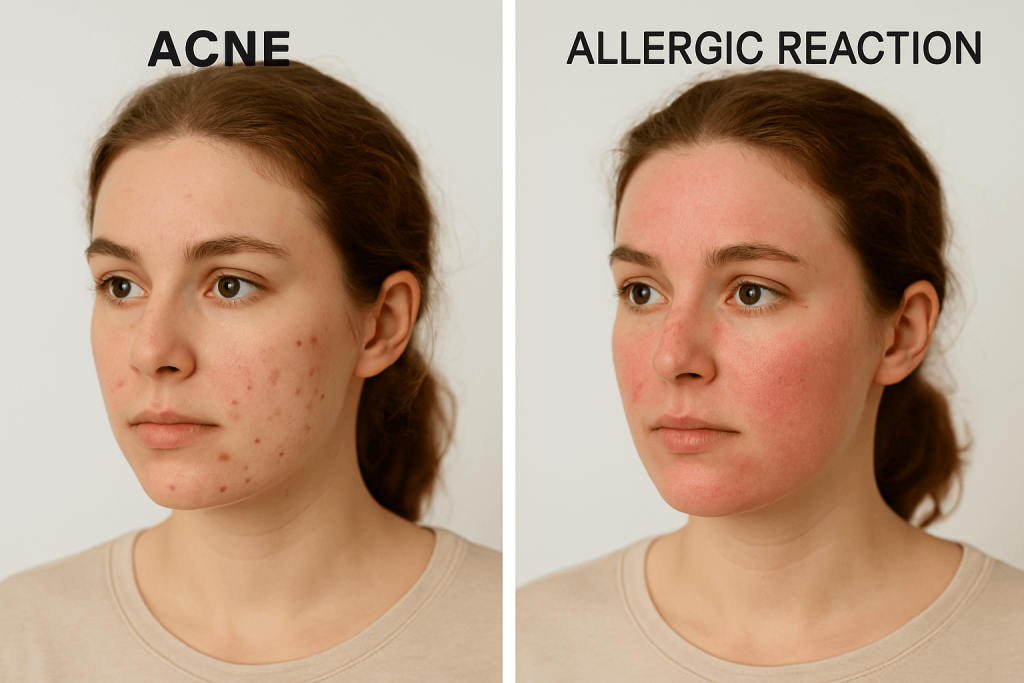The best makeup helps you look great and feel confident — but what if your favorite foundation or lip gloss is secretly working against you? Could you be allergic to your makeup?

Sometimes it’s not just clogged pores or a bad skin day — you might actually be allergic to your makeup. Yep, it happens more often than most people think. And it can sneak up on you, even with products you’ve used for years.
Here’s how to tell what’s normal irritation… and what’s a full-blown reaction.
🚨 Signs You Might Be Allergic to Your Makeup
Let’s start with the basics. Not all breakouts are created equal, and not all skin irritation means acne.
If you notice any of the following symptoms after applying makeup (especially in the same areas), your skin may be trying to tell you something:
- 🔥 Redness or swelling
- 🥵 Burning or stinging
- 😬 Itching that won’t stop
- 🫣 Hives or blistering
- 😕 Flaky, dry patches that don’t respond to moisturizer
If you’re seeing repeated redness, itching, or burning after applying makeup, you might be dealing with something called allergic contact dermatitis — a condition that occurs when your skin reacts to an ingredient it doesn’t like, as explained by the American Academy of Dermatology.
If you’re consistently seeing signs like these after using a certain product, there’s a good chance you may be allergic to your makeup — and it’s time to dig deeper.
🧪 Common Makeup Ingredients That Cause Allergies
Makeup formulas can be super complex, and even “clean” or “natural” products can contain irritants. Here are a few repeat offenders when it comes to skin reactions:
- Fragrance – the #1 culprit in most beauty-related allergies
- Parabens – used as preservatives (some people are sensitive)
- Formaldehyde-releasing agents – found in some long-wear products
- Mica + talc – natural minerals that can irritate sensitive skin
- Lanolin – moisturizing, but not everyone tolerates it well
- Nickel – sometimes present in pigments (especially metallics)
Even if you’ve used a product before with no issue, allergies can develop over time — especially with repeated exposure.
🤔 Allergy or Acne?
Here’s where it gets tricky: a lot of folks assume that post-makeup breakouts are just clogged pores. But there are key differences.
| Acne | Allergic Reaction |
|---|---|
| Usually appears as whiteheads, blackheads, or cysts | Often looks like redness, itching, or small bumps |
| Develops over time | Can show up within hours |
| May not feel itchy | Frequently itchy or burning |
| May be limited to oily areas | Can appear anywhere makeup was applied |
If your skin gets irritated in the exact same spots you apply makeup — like your eyelids, cheeks, or lips — and it gets worse with repeated use, you might be allergic to your makeup instead of just breaking out.

🧴 What To Do If You Suspect a Makeup Allergy
So… now what? Here’s what we recommend if you think your makeup might be causing trouble:
1. Stop using the suspected product immediately
Give your skin a break. If symptoms improve within a few days, that’s a strong sign that product was the problem.
2. Switch to fragrance-free or hypoallergenic formulas
Look for simple ingredient lists and test one new product at a time. The fewer the ingredients, the better your odds.
3. Patch test new products before fully applying
Try a small amount on your inner wrist or behind your ear and wait 24–48 hours to see how your skin reacts.
4. Consider seeing an allergist or dermatologist
If reactions continue, getting an official allergy panel can help you pinpoint what ingredient(s) to avoid in the future.
🧼 Fancy’s Tip: Go Easy on the Active Ingredients
We totally get the obsession with serums and multitasking makeup. But when your skin’s in distress, it’s better to keep things simple. Avoid doubling up on acids (like AHAs or salicylic), and hold off on retinol until your skin is calm again.
You Deserve Makeup That Loves You Back
At the end of the day, your skin deserves products that feel as good as they look. If you suspect you’re allergic to your makeup, don’t ignore those early signs. The sooner you make a switch, the sooner your skin can get back to its happy, glowing self.
💛 Curious about what type of facial or skincare treatment could help reset your skin? Stay tuned for our upcoming post all about calming irritated skin in our Skin Deep series.


Leave a Reply